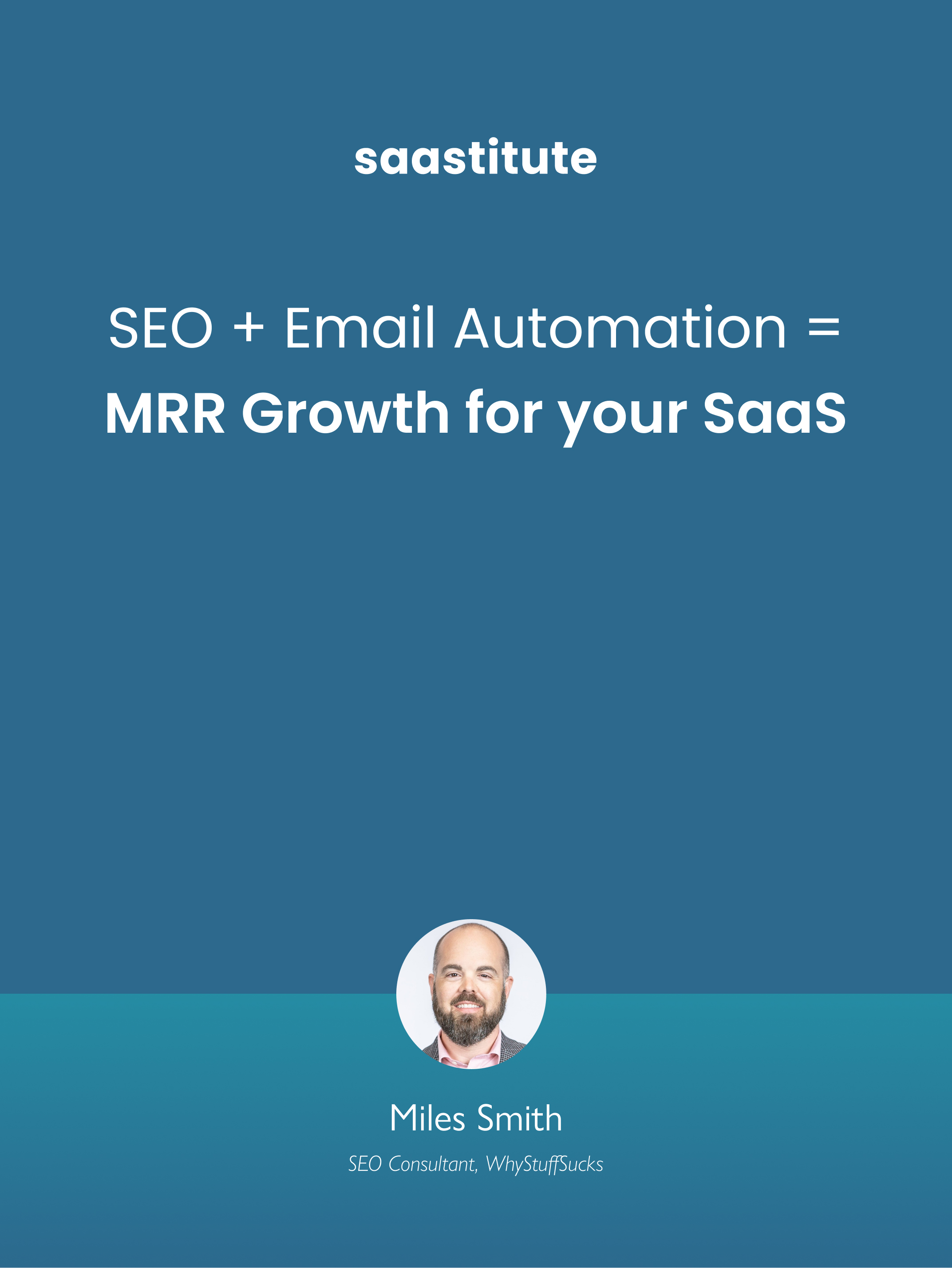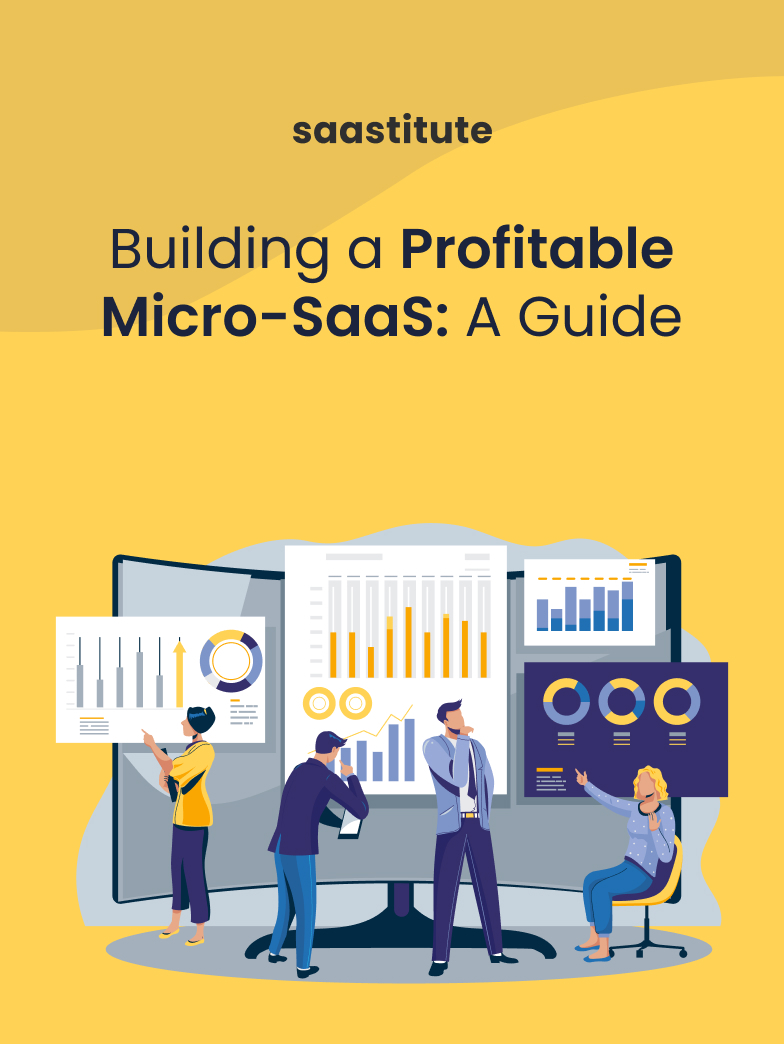How To Choose the Right VC for Your SaaS Startup
If you are looking to get funding for your SaaS business, you need to get familiar with the ins and outs of the venture capital game. Here are a few things to consider when choosing VCs for your SaaS startup.

“The ideal investment partner is someone that buys into your vision.”
You have a solid product, a growing user base and a steady revenue stream. What’s next?
Growth is the next primary objective. In the growth stage, you’ll have to think bigger—more sales, more customers and without a doubt, more capital.
To successfully raise capital for your startup, you should start thinking about it during the early stages of business.
Fundraising can be daunting. When you are exploring the possibility of raising your first investment, you need to be prepared and have an even better understanding of all the stages involved in raising capital for your SaaS startup. This is where VCs come into play.
Once you’ve decided to take the leap into an investment partnership, you’ll also have to narrow down on the venture capital firms you would like to partner with. And, of course, the first thing you need to worry about is delivering the perfect, convincing pitch to investors.
To catch the attention of the leading firms in your industry, you should thoroughly do your homework before initiating contact with them.
As you begin your search for the best VCs for your early-stage business, there are a few practices to help you along your way. Talking to your seed investors and partners and networking with peers can work wonders when identifying VCs that might be good for your Series A fundraising.
There are online resources to help startups looking for VCs that are the best fit.
Since this is your first ride, we’ll help you with it.
Online VC Resources
Crunchbase
Crunchbase was born out of the need for a better exchange of information on startup activity. It quickly grew into a breathing platform serving startups everywhere. It's like a search engine for startups. Crunchbase combines search and analysis tools to help you find investors and partners for your business.
LinkedIn is the world's largest business network to build a professional profile and connect with like-minded business contacts. LinkedIn allows you to connect with potential investors, angel investors and other entrepreneurs in a very professional setting. It is an excellent resource for finding tips for getting your business off the ground and attracting investors.
Harvard Business Review
Famous for its insightful articles and opinions, Harvard Business Review (HBR) is an invaluable resource for entrepreneurs and business leaders hoping to stay on top of their game. The site features in-depth interviews and critical analysis of current affairs related to business funding and the business world.
Wikipedia
Wikipedia is a great place for any startup owner to begin with their research as it's arguably the most comprehensive and reliable list of VC firms to be found online without paying for a subscription. This page hosts information on hundreds of firms, alongside their location, funds and years in business.
Things you should consider when choosing VCs
Before you start inviting potential investors to meetings, some homework needs to be done. Your evaluation process for choosing the best VCs to work with is an important step and shouldn't be done haphazardly. Here are a few things you should consider when choosing VCs.
Industry And Product Fit
Most venture capital investors have a specific focus on the types of companies they invest in. It’s essential to know what your potential investors are looking for so that you can tailor your pitch towards their desires. The more closely you align yourself with the type of company they prefer to invest in, the better your chances of getting them to take notice.
Look for firms that have previously worked with companies similar to yours in terms of revenue growth, user base, and product fit. Your goal here is to convince the VC that your startup is already doing well and will continue to do so, so make sure to mention your company’s current growth rate and future plans.
Network
The funding you receive from VCs is just the tip of the iceberg. One of the main advantages of potential VC clients is their network. By network, I mean real contacts with other investors and the experts within the industry you are operating.
Good VCs support you from the get-go by utilizing their network for fundraising, finding new business partners, customers or additional team members. You’ll want someone with connections outside the venture community and find out who’s really adding value. If the VC has no network in that specific field, maybe they won't be able to assist you as much as you wish.
Character Traits
A good investor will have experience and expertise that can help grow your business. But since this is a long-term partnership, you should always put people over profits. You must get along with your future investors, true. But apart from that, you must analyze them in terms of soft skills such as empathy and understanding.
A good investor should be someone you can trust and rely on to provide honest feedback and advice, so it's important to know who you're working with, what their values are and if they share your vision for the future of your business. Also, make sure you already feel a gut-level connection with the investor to avoid future problems.
Commitment
You are one of a kind, so why not find an investor that will go above and beyond for your idea. Startups need to find a venture capitalist who can offer more than capital. They must be quick to act and available whenever entrepreneurs need them.
If a VC invests time and energy in the form of mentorship and support, the collaboration flows better, helping both parties reap maximum benefit. If the VCs are not helpful and committed enough during a startup’s early days, founders are better off not working with them.
Track Record
Entrepreneurship is a roller coaster of emotions, so why not ride it with a partner you trust? Without proper research, you could end up working with a VC who’s not the best fit for your company. This could lead to unproductivity and an overall waste of time. Do some background research first.
There’s no better way to get the inside scoop about a VC than by asking early-stage founders for their opinions. Reach out to other startup founders who have raised money from VCs and ask them about their experiences. This can go a long way in helping you determine who could be a good fit for your startup.
Term Sheet
Negotiating a good term sheet is like creating a solid foundation for your house – you need to get it right the first time, or things will start falling apart sooner than later. Don’t underestimate its power.
The goal is to find a term sheet that both parties will be comfortable with. Nothing is worse than a term sheet full of fine print and grey areas. Make sure to always carefully look at the terms offered and ask for help if you are unsure about the information presented. If it seems like your VC is trying to pull a fast one on you, it is worth looking for someone else.
To Wrap Up
While getting funding for your startup is essential, choosing the right investors is just as important, if not more so. Choose investors that align with your vision help build a network and map on the same scale as you do. Doing so will set you up for long-term success and make your business journey a bit easier along the way.














.svg)


